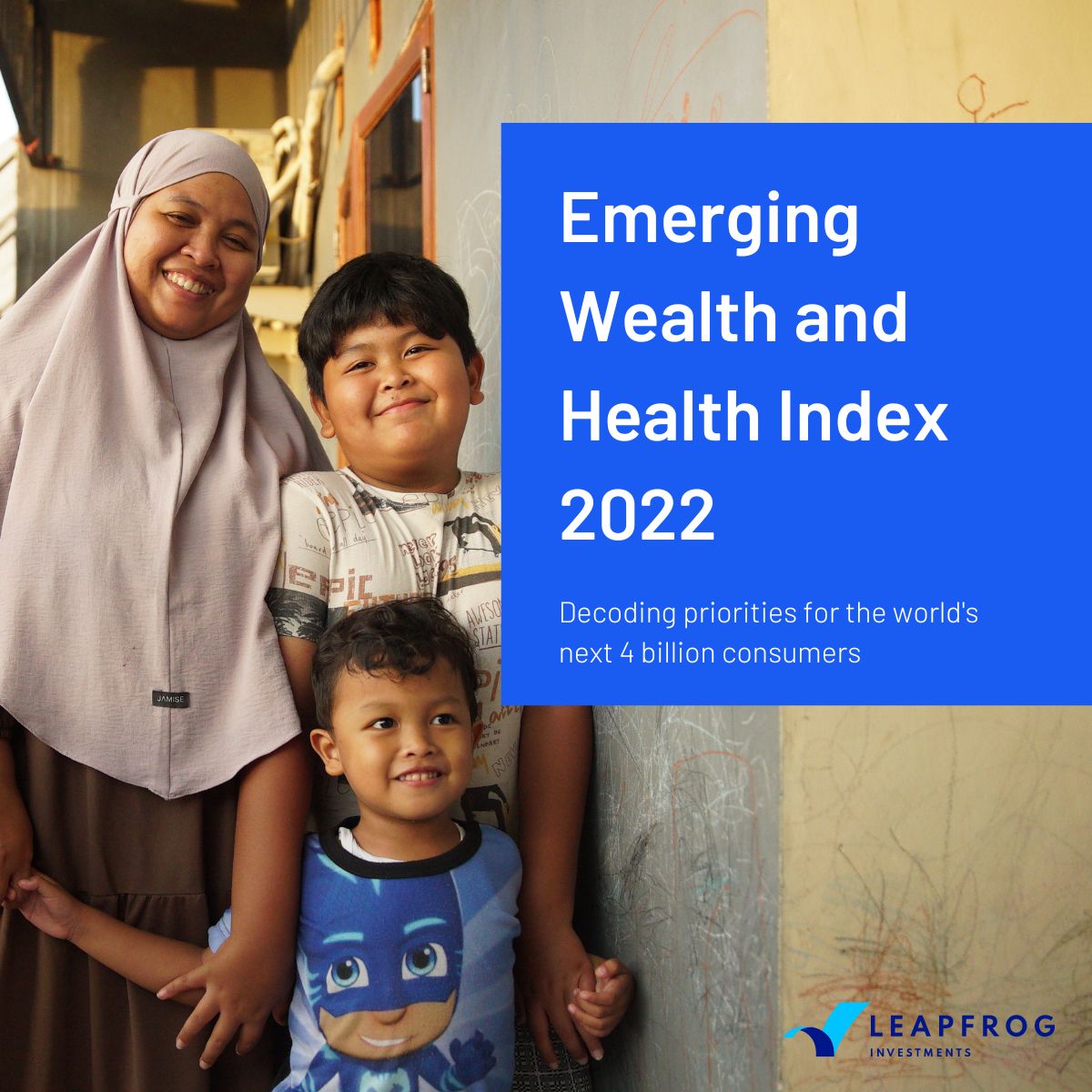
LeapFrog’s Emerging Wealth and Health Index 2022
LeapFrog Investments, a leading impact investor, recently published the Emerging Wealth and Health Index 2022, studying the rapidly evolving consumption habits of emerging consumers. This includes the technologies they use, the trade-offs they face, barriers that stop them accessing what they want, and their experiences both positive and negative of accessing wealth and health services.
60 Decibels surveyed ~4000 emerging consumers across eight markets – India, Indonesia, Vietnam, Bangladesh, Egypt, Ghana, Kenya, and Nigeria – that are home to 2.2 billion people, or close to 30% of the world’s population. In each market and study we targeted 275 responses, to achieve a strong representative sample at a 90% confidence level and 5% margin of error.
As a firm investing in next generation wealth and health companies, LeapFrog is concerned to delve deeper into the journeys and experiences of these consumers and better understand the products and innovations that can improve customer acquisition, satisfaction, and retention.
41%
2 in 5
3 in 4
What the 2022 Emerging Wealth and Health Index reveals is startling.
- While Global growth markets share many similarities, they are highly heterogenous. On average, a high proportion of respondents in these markets (41%) report inability to access financial products in the last 12 months. For most countries, the main product that respondents desired to access but couldn’t is credit, but in Indonesia it is insurance. There is wide variability between countries in terms of overall financial contentment, and financial outlook, although respondents in all markets share a highly optimistic view of their financial future.
- A two-tiered economy exists for the digitally enabled versus the digitally excluded. Smartphones have become the dominant distribution method for many emerging market wealth and health products. Those who use a smartphone on a regular basis have much higher rates of access to insurance and banking, report greater reduction in stress due to their use of financial products, improved ability to cover household expenses, and improved capacity to save and plan ahead. The digitally enabled are also more optimistic: 84% of those who use smartphones have a positive outlook on their family’s financial future versus 73% for those who don’t use smartphones.
- Global growth markets continue to face huge gaps in the penetration and quality of wealth and health products. Tracking these gaps builds the roadmap for impact investors seeking to make a difference at scale. More than 2 in 5 respondents never get a check-up for potential health conditions, particularly in Kenya, Nigeria, and Egypt. Around 3 in 4 respondents rely on out-of-pocket money to pay for healthcare needs. Around 2 in 3 respondents faced difficulty accessing the financial services they needed, either because costs were too high, they didn’t meet application criteria, or they didn’t have required documentation. Most respondents go to friends and family for financial advice rather than financial institutions or online resources.
“I think about health a lot and take proactive steps to prevent illness because I am concerned about my health as I have kids. My priority at the moment is to take preventative medication.”
– Female, 36, Egypt